"Unbelievably Interesting People Have Appeared" - Cult-net (in Hungarian: Kultháló) interview with Tibor Csabai, one of the organisers of the KOR-társ a Művészetekben (Contemporaries-in-the-Arts) project in Magyarpolány
We continue our presentation of locations in the Cult-net Programme with the KOR-társ a Művészetekben project in Magyarpolány. One of the project's organisers, Tibor Csabai, moved to the village almost twenty-five years ago when he was invited to become the local school's headmaster. Under his leadership, the School of Arts became very popular; at one time, they taught approximately one thousand students in thirty-two municipalities, from the Balaton Highlands to Székesfehérvár.
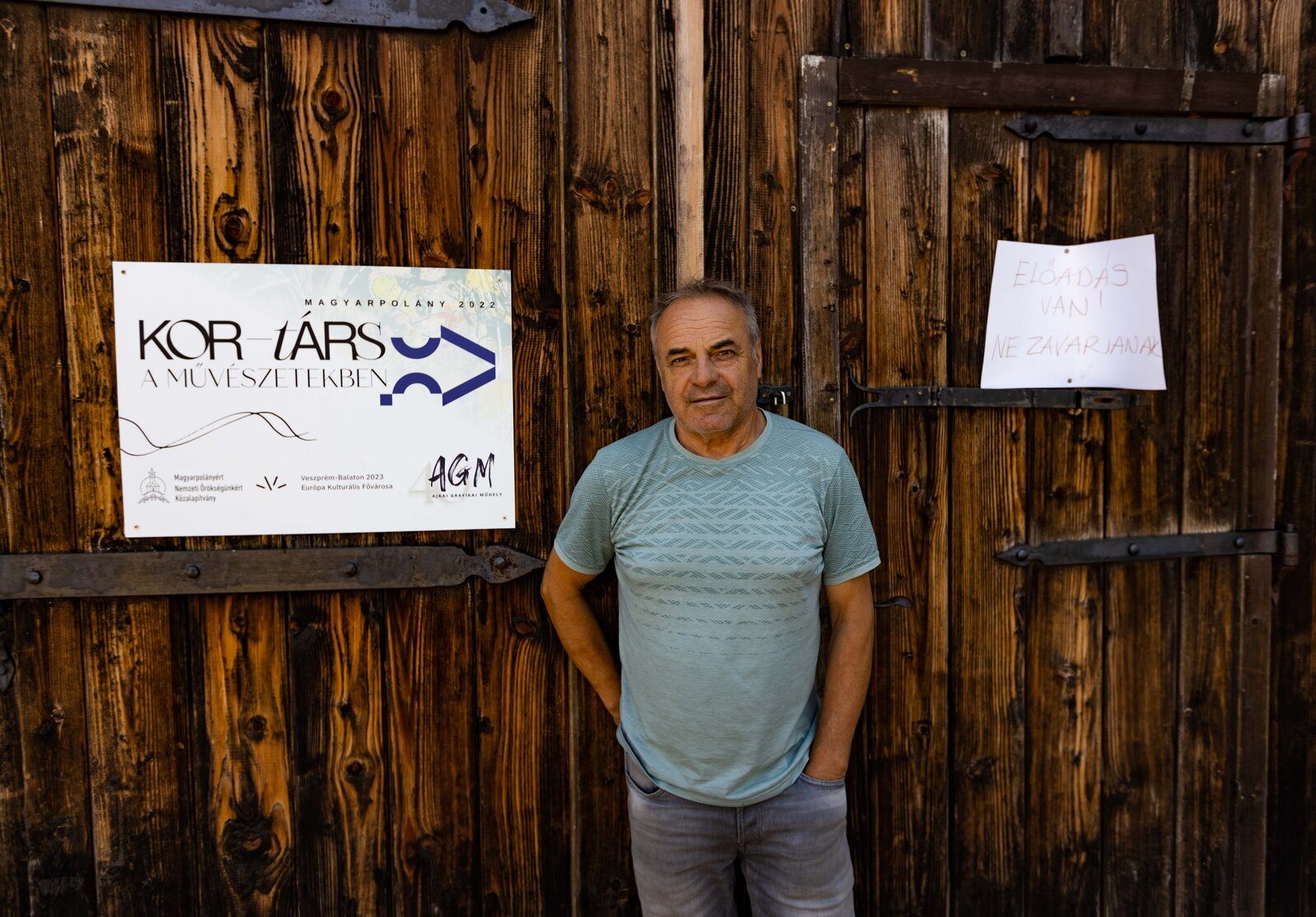
Not surprisingly, Tibor, with his strong background and extensive experience in fine arts, is also responsible for the KOR-társ project with the assistance of his two daughters supporting him from Budapest in marketing and web design. In collaboration with the VEB2023 European Capital of Culture Programme, the Cult-net is in the process of preparing a total of twenty-five programmes this year with the participation of twenty mentors. Tibor oversees the visual arts programmes, actor Balázs Kató runs the theatre productions and another actor, Andor Horváth, is in charge of media and digital culture.
Three branches of the arts in a single programme
Magyarpolány has long hosted various summer art workshops; the Ajka Graphic Workshop (in Hungarian: Ajkai Grafikai Műhely), for example, celebrating its 40th anniversary this year, has organised sculpture studios in the village for the past eight years for both domestic and foreign artists. The central aim of the Cult-net programme was to give the workshops a new innovative focus that differs from earlier ones. This allowed those already familiar with the workshops and belonging to established artistic colonies to become involved in contemporary art through the programme.
In addition to the visual arts, the theatrical arts are represented in the village by the Polányi Passió (Passion of Polány). It has been performed for 29 years and is the basis for an introductory theatre programme. The cast of the Passion includes amateurs of all ages, children to adults. The third artistic branch is digital culture and media.
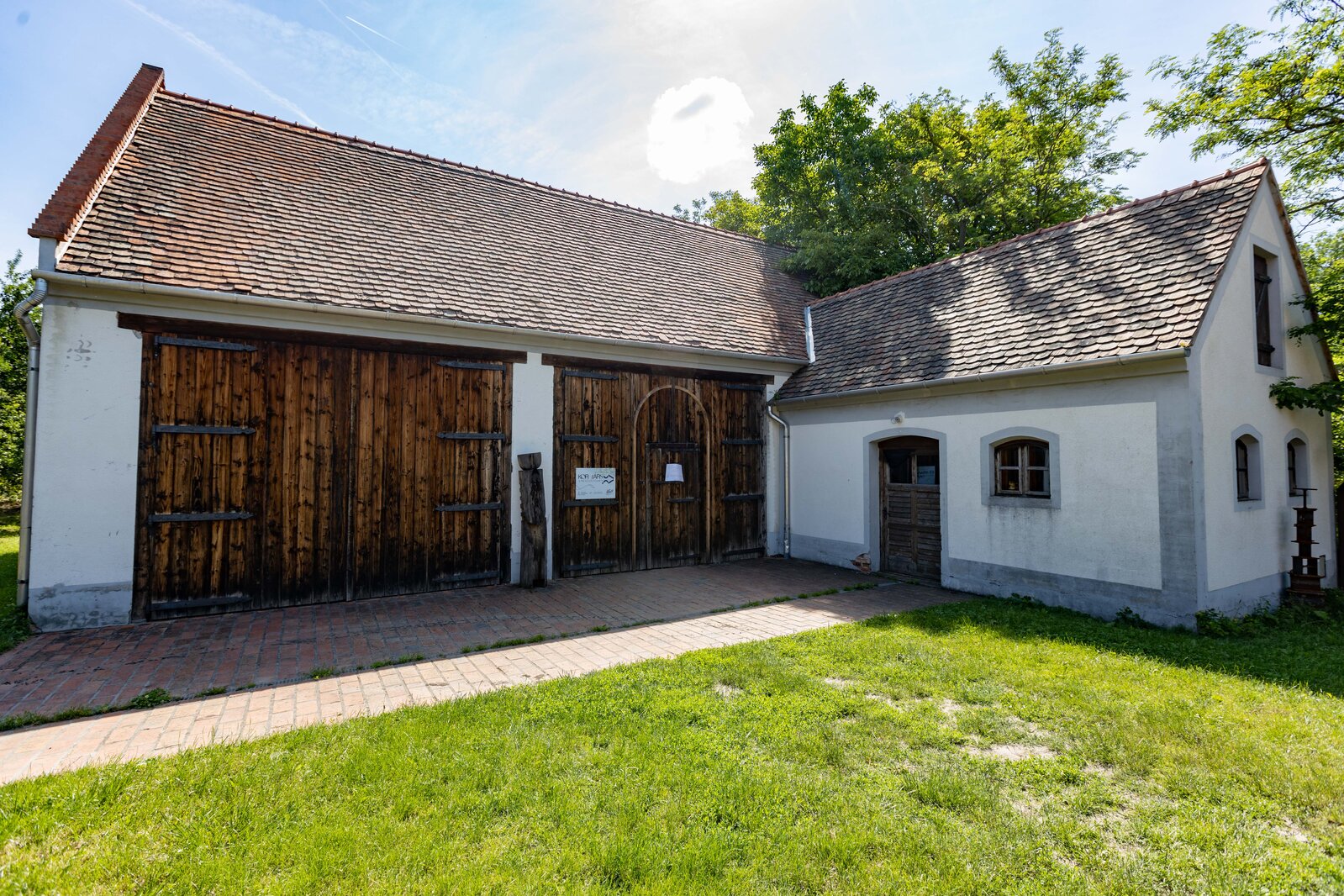
Last year, we managed, perhaps for the first time in the country, to launch film classes. It broadened the arts education curriculum to include filmmaking alongside visual arts, drama, and folk dance. The result is that this small group of filmmakers now boasts international links and has already won awards. Most recently, they achieved excellent results at the Motion Picture Festival (in Hungarian: Mozgókép Fesztivál) in Balatonfüred
- says Tibor.
Four venues and a colourful range of programmes
The programmes will take place in four venues. The main one is the recently built village hall, but the country house, Pajta Színház (Barn Theatre) and a sacral memorial site will also be involved. Recently a conference room was added to the latter. It will serve primarily as an exhibition space and host smaller performances and shows.
The theatre and behind its scenes
In the beginning of July (from 1 to 8), the Pannon Színitanoda (Pannon Theatre School - PASZTA) will host a summer arts camp, an experiential theatre and drama workshop, with various invited performers and students participating in summer exercises.
On 6 July (5 pm), the play Rómeó és Júlia – Rómeó misszió (Romeo and Juliet – Romeo's Mission) will premiere in an immersive theatre performance directed by Attila Vidnyánszky. This piece was already a great success at the Shakespeare Festival of the Gyula Castle Theatre. On 7 July (7 pm), Csaba Székely's drama, Bányavirág (Flower of the Mine) will be performed, followed by a discussion with the audience.
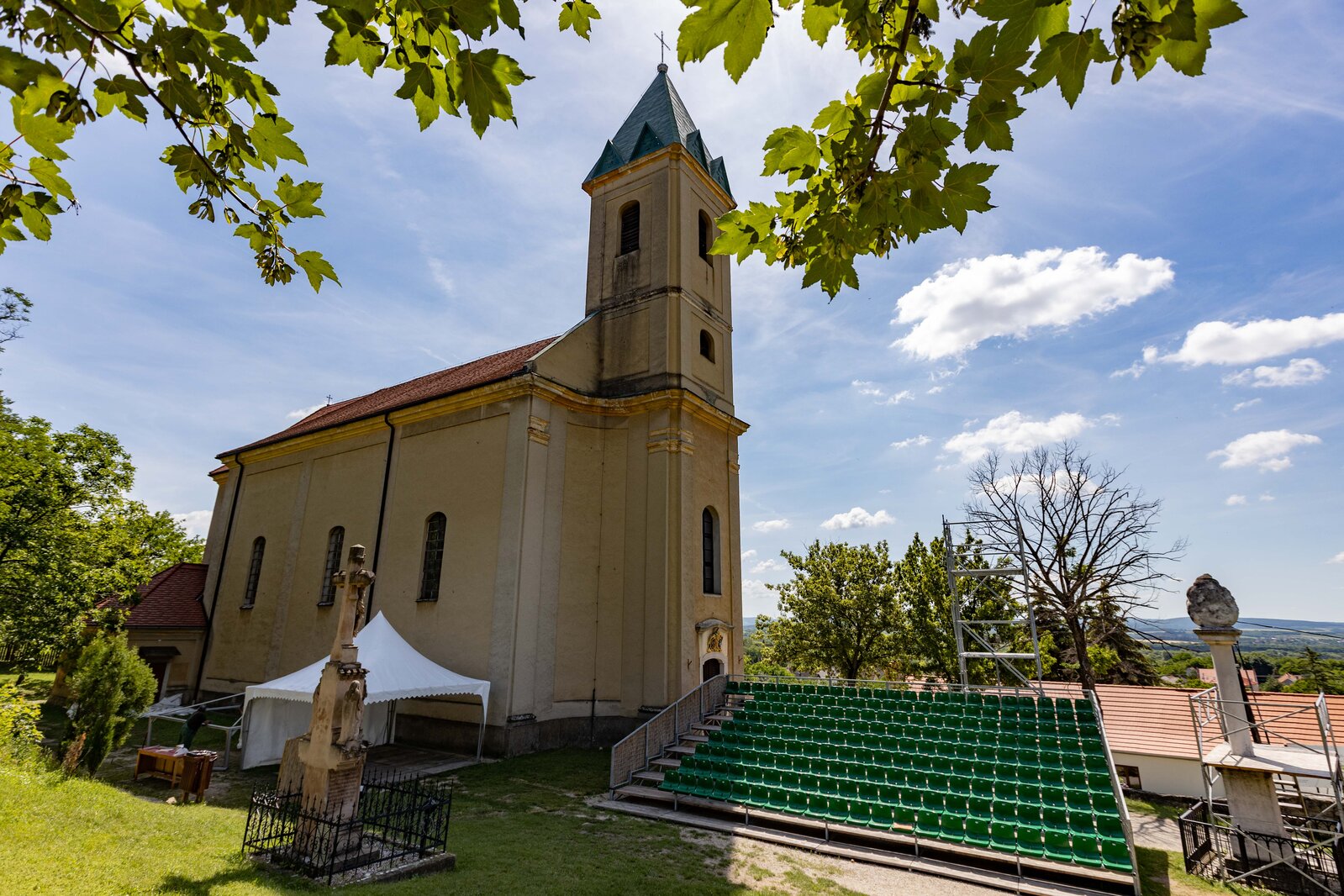
Fine arts programmes
The 40th-anniversary international artists' community of the Ajka Graphic Workshop, a visual arts studio, will be organised from 11 to 18 July, and on 18 July, a so-called Karc Nap (Etching Day) is scheduled.
It will be a day when anyone can drop in and learn duplicating printmaking techniques or simply get a glimpse of our methods. What we'll do is bring the creative process closer to the people
is how Tibor explains the essence of the artists' colony.
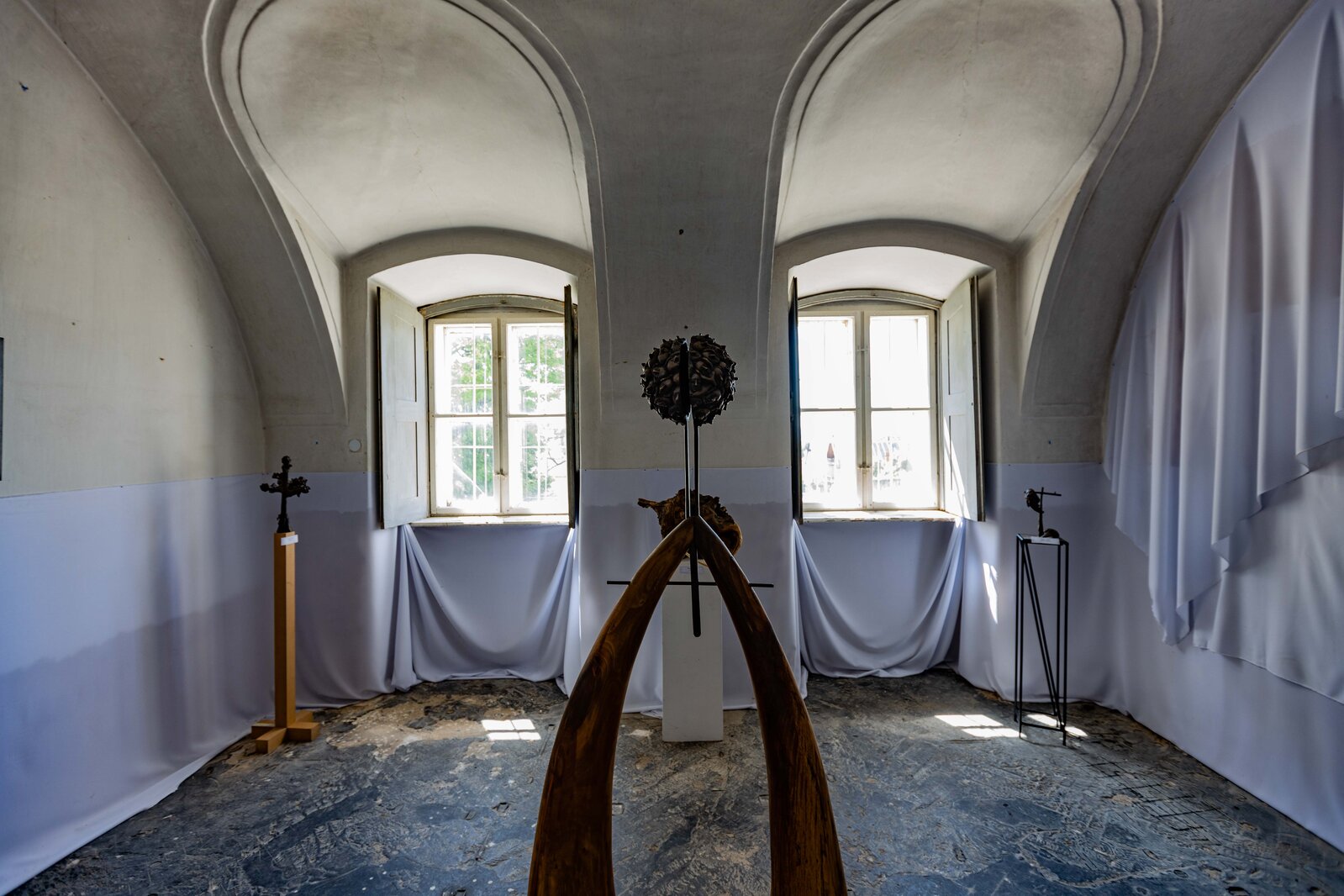
One of the series’ highlights, entitled Open Workshop, "From Blank Canvases to Finished Paintings" (in Hungarian: Nyitott Műhely „Üres vásznaktól a kész képig”), will be held on 22 July. The event will focus on creation: painting, fun, visual arts, and music. There will be an informal discussion focusing on the state of domestic and international contemporary art, with the participation of invited Hungarian, Transylvanian, Slovak, Austrian and German painters. The event will focus on active painting, with ten to twelve painters working together. Musicians will perform as part of the programme.
From 6 to 16 August, there will be a so-called Bronze Camp (in Hungarian: bronztábor) for bronze sculptors, and from 20 August, the focus will be on metal sculpture. The main processes will be demonstrated out on the street, and visitors can try them out. They can even take a closer look at 'raku', a technique of pottery not widely known in Hungary.
Media and digital culture in the spotlight
Cinematographer Gábor Szabó will lecture on cinematography on 2 July. Károly Szelényi, the photographer, will talk about his work on 6 August in a lecture entitled Bevezetés a színtanba (“An Introduction to Colour Theory”). On 24 September, Brigitta Bacskai, a lecturer at the Department of Animation at Budapest Metropolitan University, will give an interactive lecture on the basics of editing in digital culture.
The events will end with a grand street party on 8 October, when all finished works will be on show in a fence gallery on the street.
Top-level interactivity
The programmes will be highly interactive, but in addition to being entertaining, most are intended to be educational. According to Tibor, there will be something for everyone from the youngest set to the oldest age group.
So far, the programmes have involved children, young people and adults, and it has been very refreshing to see the interesting connections developing between various generations. I think the key thing is to keep people engaged in every programme. The experience is that if they are not just lame spectators who just sit in on a performance, but get involved in the programme, they leave much more satisfied
- says Tibor. He has experience in the Cult-net programme, which he organised using the knowledge of improvisation he gained at the University of Fine Arts.
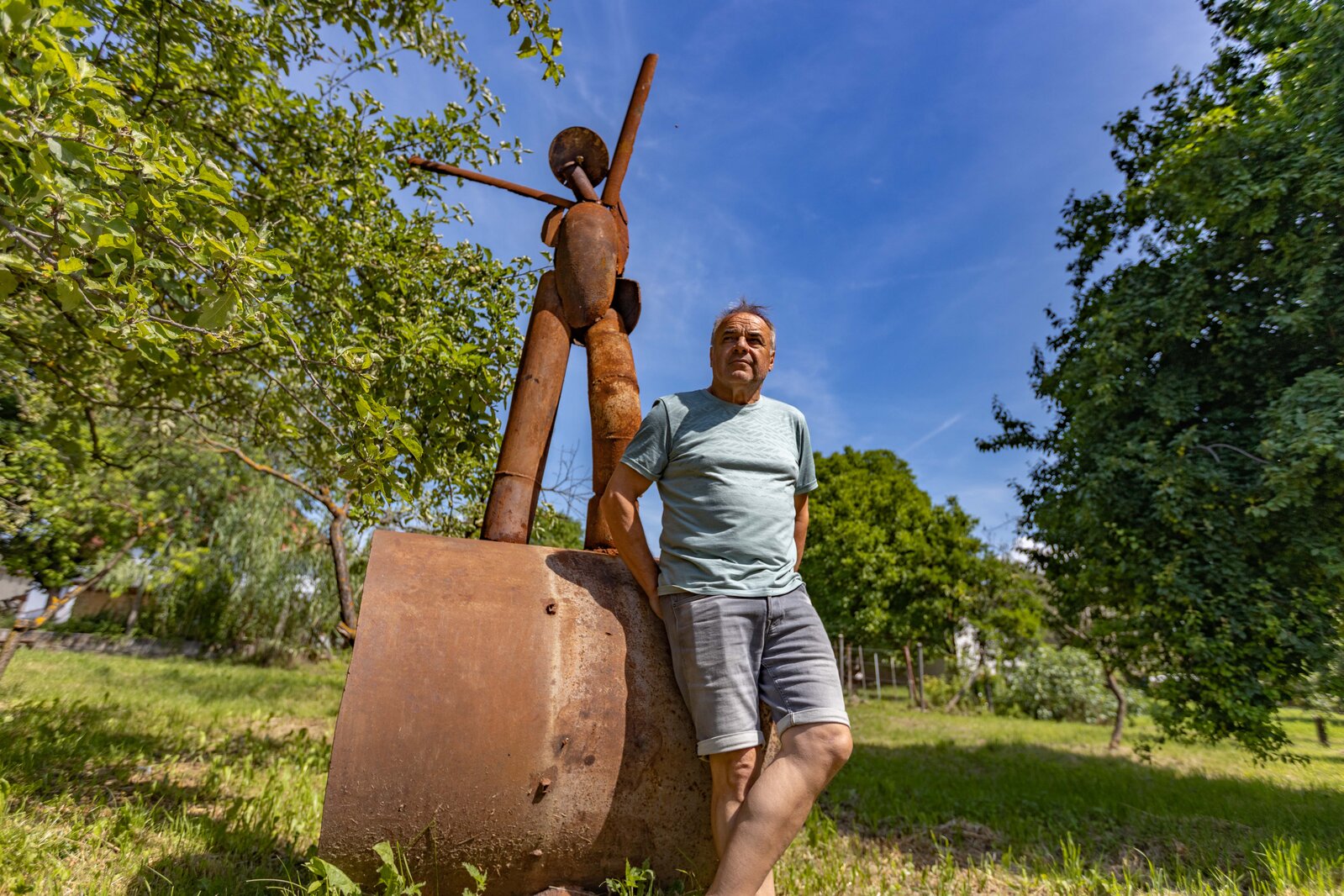
Community life in Polány then and now
According to Tibor, the Cult-net programme has dramatically boosted local community life.
When we started preparations a couple of months ago, people who lived in our neighbourhood came to us, but we were unaware of many exciting things. For example, we found out that two composers of instrumental music, both graduates of the University of Pécs, lived in the village. We also needed volunteers to help with the organisation and running of the festival. In the end, the kids who used to go to school here and are now attending the Fine Arts University or the University of Pécs come home on weekends and ask us what they can do to help. It is this spirit that holds it together even more. I could go on because there are so many interesting people here that it's unbelievable.
